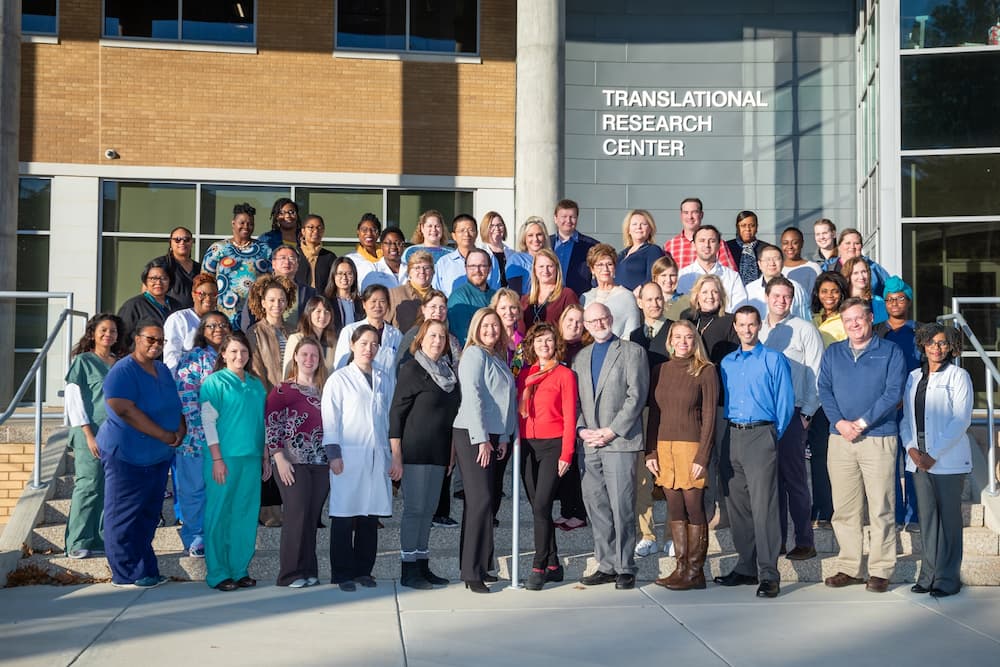
The MIND Center: Advancing Alzheimer's and dementia research for over a decade
By: Melissa Robinson, Major Gifts Officer & Denise Lafferty, Chief Strategy and Operations Officer
Since its inception in 2010, The MIND Center at UMMC has been working tirelessly to unravel the underlying causes of Alzheimer’s disease and other dementias through the use of pioneering research, state-of-the-art brain imaging, and powerful genetic technologies. This momentum did not waiver even amidst the COVID-19 pandemic. By successfully pivoting to virtual platforms to connect with study participants, critical research into the causes of Alzheimer’s and dementia continued.While in-person exams to the research clinic were suspended, The MIND Center quickly developed, validated, and implemented remote phone-based cognitive assessments across our study sites around the U.S. so that the research could continue. These were very successful and are now being studied for adoption by other projects around the U.S. and NIH as a model of efficient assessments and to supplement in-person exams.
At present, The MIND Center has 17 active research grants funded by the NIH totaling more than $20.6 million and supporting the salaries of over 80 dedicated staff and scientists. Here is a closer look at a few of the studies The MIND Center is currently conducting.
MIND Center Active Research Studies
Due to its longstanding achievement with conducting large population based studies, The MIND Center has been asked to participate in the NIH-funded study, Collaborative Cohort of Cohorts for COVID-19 Research (C4R) Study. Participants in C4R are currently enrolled in 14 long-term cohort studies conducted at 37 academic medical centers across the country. This new collaborative study will answer important questions about COVID-19 that cannot be answered by smaller, individual studies that have been set up to study COVID-19.
The MIND Center continues to lead the Atherosclerosis Risk in Communities Neurocognitive Study (ARIC NCS), a collaborative study with Johns Hopkins, University of Minnesota, Wake Forest University, University of North Carolina – Chapel Hill, Baylor University, University of Texas at Houston, and Mayo Clinic. ARIC NCS is the most comprehensive study of dementia risk ever undertaken, including the largest sample of African Americans, and has received over 30 consecutive years of funding from the NIH.
Data analysis for the Eye Determinants of Cognition (EyeDOC) Study continued over the past year. A collaboration with Johns Hopkins University, this study used sophisticated retinal imaging to identify predictors or changes in the eye representative of early cognitive impairment and dementia.
The MIND Center continued to participate in the GRADUATE 1 Clinical Trial, sponsored by Hoffmann-La Roche, which is evaluating the efficacy and safety of a monoclonal antibody, Gantanerumab, designed to bind to amyloid beta protein in the brain of patients with mild cognitive impairment or mild Alzheimer’s disease.
In March 2021, the American Heart Association published a Scientific Statement providing an up-to-date summary for primary care providers in the assessment and modification of risk factors at the individual level that maintain brain health and prevent cognitive impairment. As a member of the American Heart Association Science Advisory and Coordinating Committee, Dr. Tom Mosley served as an expert reviewer of the Scientific Statement which the American Academy of Neurology has also endorsed as an educational tool for neurologists.
To learn more about The MIND Center visit umc.edu/mindcenter.


